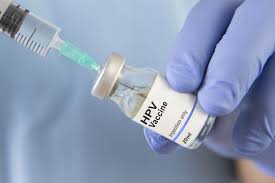


Oyo State Government clarifies purpose of HPV Vaccine amid population reduction speculations
In response to recent speculations regarding the Human Papilloma Virus (HPV) vaccine, the Oyo State Government has reaffirmed that the vaccine is not intended as a means to reduce the population of Africa. This declaration was made by Dr. Muideen Olatunji, the Executive Secretary of the Oyo State Primary Healthcare Board, during a press conference held on Monday in Ibadan, the state capital.
Addressing journalists, Dr. Olatunji emphasized that the state has incorporated the HPV vaccine into its Extended Programme on Immunization (EPI), specifically targeting girls aged between 9 and 14 years. He underscored the seriousness of cervical cancer, highlighting it as one of the most prevalent forms of cancer affecting women, and stressed the necessity of addressing the disease proactively.
“The vaccine was developed with the aim of preventing cervical cancer,” stated Dr. Olatunji, refuting claims of any ulterior motives. He further elaborated on the successful launch of the programme at St. Paul Anglican Primary School, Yanbule, Bashorun, where over 300 pupils have already received the vaccination.
“It is pertinent to reiterate that the vaccine is not designed to reduce the population of the state,” affirmed Dr. Olatunji. “This is a demonstration of our continued partnership and collective efforts to protect young girls and citizens of the state against the prevalence of cervical cancer.”
Dr. Olatunji highlighted the preventable nature of cervical cancer through routine HPV vaccination and emphasized the government’s commitment to ensuring comprehensive coverage across Oyo State. He reassured the public regarding safety measures, including rigorous training for vaccine administrators, regular supervision, and thorough safety checks.
“Cervical cancer globally accounts for a significant number of deaths and ranks among the top cancers affecting women worldwide,” Dr. Olatunji remarked. “By administering the HPV vaccine, we are implementing a cost-effective and safe preventive measure to reduce the burden of this disease and safeguard the health and well-being of our citizens, particularly young girls.”



